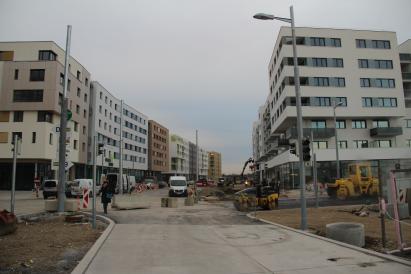Why Tackling Early School Leaving in Cities Matters
In his seminal book, The Rise of the Meritocracy, Michael Young set out his concerns for a society increasingly focused on qualifications and narrow academic talent. One of his worries was that people with other skills – for example the lorry driver who is an excellent amateur rose grower – would be less valued, as academic skills would become the gold standard. He also predicted that this would mean a drift towards credentialism, where qualifications become a proxy for overall human worth.
It would be hard to argue that Young’s rather dystopian vision has not come to pass. In today’s world, qualifications are everything. Yet, in these turbulent times, they can simultaneously be a guarantee of nothing. In countries like Spain and Greece, the best-educated and qualified generations in history have found that without employment opportunities, certificates are worthless. In both of these countries, the best and the brightest have had to leave in order to start their careers. For those still in the education system, perhaps a few will decide that labour market unpredictability no longer makes it worth staying in school. But despite this, all of the evidence suggests that in an increasingly competitive labour market, qualifications still give you the edge.
Conversely, there is ample evidence of what happens when you drop out of education early, or fail to achieve the basic grades. As most European city economies continue to hollow out, with diminishing levels of low-skilled employment, completing compulsory education becomes a minimum requirement for a decent economic – and social – future. An extensive body of research underlines the long-term challenges faced by those who fail to make a smooth transition from education to employment. The OECD has pointed to the scarring effects of being NEET, which extend way beyond adolescence, making long-term unemployment, poor health and even criminal behaviour, more likely. Conversely, one EU estimate puts the additional lifetime income for a student at €70,000 for an additional year at school.
It is for these reasons that the EU adopted a reduction in early school leaving rates as one of its headline targets for 2020. This metric relates to the proportion of 18-24 year olds with only lower secondary education or less. The EU 2020 target is to reduce the rate to 10% or less. In 2012 it stood at 12.7%, which equates to 5.5 million young people across the EU.
Cities are central to achieving this goal, for a number of reasons. First, 70% of EU citizens are urban dwellers and the continent’s largest cities have higher than average proportions of younger people. Secondly, these statistics reflect the higher proportions of migrants and people of ethnic minority background in our cities, and (where it exists) the evidence indicates that children from some minority backgrounds are prone to early school leaving. A European Commission report recently noted that in the EU as a whole, 30.1% of non-nationals are early school leavers compared to 13% of nationals. We also know that other factors make young people less likely to complete their statutory education: these include having parents with low qualification levels and suffering health problems.
In this article we will explore the phenomenon of early school leaving in Europe’s cities. Drawing upon the latest evidence, as well as on the work of a number of URBACT networks, we will examine what cities are doing to address the challenge.













